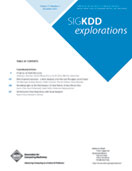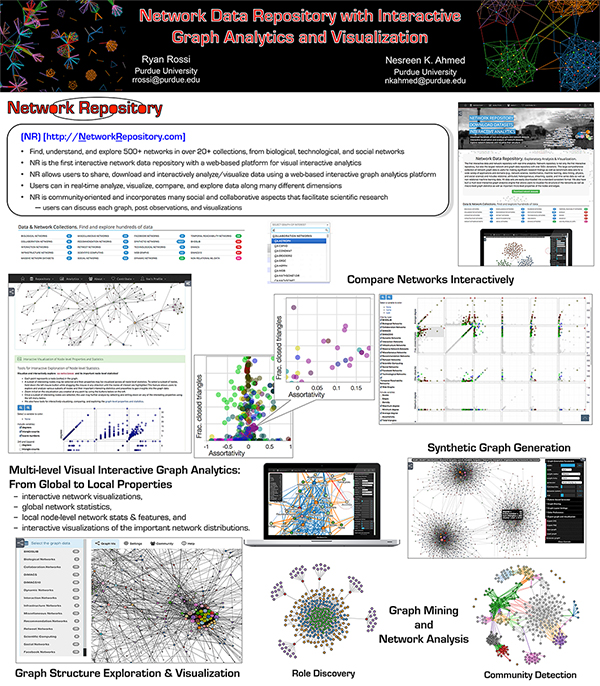-
 Scientific data repositories have historically made data widely accessible to the scientific community, and have led to better research through comparisons, reproducibility, as well as further discoveries and insights. Despite the growing importance and utilization of data repositories in many scientific disciplines, the design of existing data repositories has not changed for decades. In this paper, we revisit the current design and envision interactive data repositories, which not only make data accessible, but also provide techniques for interactive data exploration, mining, and visualization in an easy, intuitive, and free-flowing manner.
Scientific data repositories have historically made data widely accessible to the scientific community, and have led to better research through comparisons, reproducibility, as well as further discoveries and insights. Despite the growing importance and utilization of data repositories in many scientific disciplines, the design of existing data repositories has not changed for decades. In this paper, we revisit the current design and envision interactive data repositories, which not only make data accessible, but also provide techniques for interactive data exploration, mining, and visualization in an easy, intuitive, and free-flowing manner.
-
-
Network Repository (NR) is the first interactive data repository with a web-based platform for visual interactive analytics. Unlike other data repositories (e.g., UCI ML Data Repository, and SNAP), the network data repository (networkrepository.com) allows users to not only download, but to interactively analyze and visualize such data using our web-based interactive graph analytics platform. Users can in real-time analyze, visualize, compare, and explore data along many different dimensions. The aim of NR is to make it easy to discover key insights into the data extremely fast with little effort while also providing a medium for users to share data, visualizations, and insights. Other key factors that differentiate NR from the current data repositories is the number of graph datasets, their size, and variety. While other data repositories are static, they also lack a means for users to collaboratively discuss a particular dataset, corrections, or challenges with using the data for certain applications. In contrast, we have incorporated many social and collaborative aspects into NR in hopes of further facilitating scientific research (e.g., users can discuss each graph, post observations, visualizations, etc.).
NetworkRepository: A Graph Data Repository with Visual Interactive Analytics
Network Repository (NR) is the first interactive data repository with a web-based platform for visual interactive analytics. Unlike other data repositories (e.g., UCI ML Data Repository, and SNAP), the network data repository (networkrepository.com) allows users to not only download, but to interactively analyze and visualize such data using our web-based interactive graph analytics platform. Users can in real-time analyze, visualize, compare, and explore data along many different dimensions. The aim of NR is to make it easy to discover key insights into the data extremely fast with little effort while also providing a medium for users to share data, visualizations, and insights. Other key factors that differentiate NR from the current data repositories is the number of graph datasets, their size, and variety. While other data repositories are static, they also lack a means for users to collaboratively discuss a particular dataset, corrections, or challenges with using the data for certain applications. In contrast, we have incorporated many social and collaborative aspects into NR in hopes of further facilitating scientific research (e.g., users can discuss each graph, post observations, visualizations, etc.).
Download White Paper »